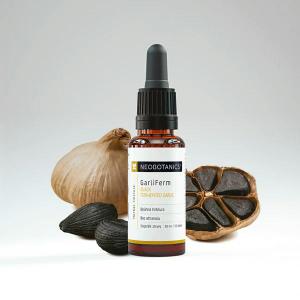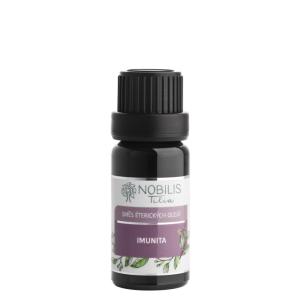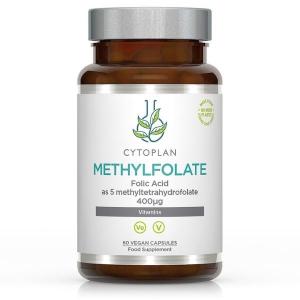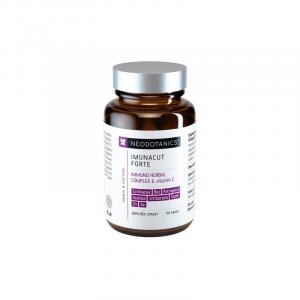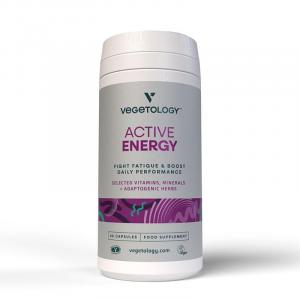
Experiences with Medicinal Mushrooms Worth Trying

Medicinal Mushrooms and Their Place in the Modern Lifestyle
A few years ago, mentioning "medicinal mushrooms" would likely have elicited puzzled expressions or associations with ambiguous alternative medicine among most Czechs. Today, however, these natural helpers are increasingly part of a modern healthy lifestyle—not just due to the trend of returning to nature, but primarily because of the experiences of people who have witnessed their effects firsthand. Medicinal mushrooms are not a miracle cure, but their regular use can significantly support immunity, mental resilience, and energy in everyday life.
What are medicinal mushrooms and why are we talking about them more often?
The term "medicinal mushrooms" refers to a group of fungi that have been used for centuries in traditional healing systems such as Chinese, Tibetan, or Ayurvedic medicine. These include reishi (Ganoderma lucidum), cordyceps, chaga, lion's mane (hericium), shiitake, maitake, or tremella.
Many of these mushrooms contain interesting bioactive compounds—such as beta-glucans, polysaccharides, triterpenes, or antioxidants—that contribute to harmonizing the immune system, support brain function, improve sleep, help the body manage stress, or increase vitality.
The magic of these mushrooms lies in their adaptogenic properties—their ability to help the body adapt to adverse conditions without causing side effects. It's not about stimulating the body like caffeine, but about gently and gradually tuning the internal balance.
Experiences of people who have incorporated medicinal mushrooms into their lives
The growing popularity of these mushrooms is partly due to scientific research, but personal experiences of users play an equally important role. In online discussions, reviews, and professional articles, similar stories are repeated: people describe how regular use has made them feel calmer, better manage stressful situations, fall ill less often, improve concentration, or regain energy they thought was lost forever.
For instance, reishi is popular among users for its effects on sleep—many describe that after a few weeks of regular use, the quality of their sleep improved, they stopped waking up at night, and felt refreshed in the morning. Experiences with lion's mane often mention improved memory and higher mental alertness—particularly interesting for students or people working in demanding mental environments.
Jana, a forty-year-old manager from Brno, began using medicinal mushrooms after severe burnout. "I wasn't expecting miracles, but after a month, I noticed I was sleeping better and had more energy. It wasn't a sudden change, but a gradual improvement that I felt more in hindsight—one day I realized I was handling a typical day with an ease I hadn't known for years."
Similarly, athletes speak highly of cordyceps, a fungus that parasitizes on insect larvae in nature, valued for its ability to improve endurance and recovery. Some studies have shown that cordyceps can increase ATP production—cellular energy—which could explain the reported increase in performance.
However, it's important to note that effects usually don't manifest immediately. Most people notice changes only after several weeks of regular use—and that's why patience and consistency are key prerequisites for a positive experience.
Science or belief? Modern research also seeks answers
While personal experiences can be a strong impulse to try medicinal mushrooms, many ask: Do these mushrooms truly have proven effects, or is it a placebo? The answer, as with many natural substances, is more complex—science often lags behind practice in this regard.
For example, reishi has been studied in dozens of studies, with some confirming its immunomodulatory effects, ability to lower cholesterol levels, or support liver function. Scientific interest is also growing in lion's mane—according to a study published in the Journal of Agricultural and Food Chemistry, this mushroom can stimulate nerve cell growth due to its hericenones and erinacines content.
However, this does not mean that medicinal mushrooms should replace traditional medicine—quite the opposite. They are primarily viewed as a supplement to a healthy lifestyle that can help the body function better, but they are not intended to address acute health issues.
It's also crucial to distinguish between quality extracts and less effective products. The market is full of dietary supplements with medicinal mushrooms, but the differences in quality are significant. User experiences show that the best results come from double extracts, which combine both water and alcohol extraction and contain standardized amounts of active compounds.
Which mushrooms do people most commonly choose and why?
Choosing the right mushroom depends on specific needs and goals. Here is an overview of the most well-known ones:
- Reishi (Ganoderma lucidum) – supports the immune system, improves sleep, harmonizes the body
- Lion's mane (Hericium erinaceus) – boosts memory, concentration, nervous system
- Chaga (Inonotus obliquus) – strong antioxidant, immune support, anti-inflammatory effects
- Cordyceps (Cordyceps sinensis / militaris) – increases energy, improves physical performance and recovery
- Shiitake and maitake – suitable for immune support and overall vitality
Try our natural products
Interestingly, many people combine multiple types at once—so-called "mycocomplex" blends are designed to synergistically complement the effects of individual mushrooms.
Nature as a partner, not an alternative
Experiences with medicinal mushrooms show that health is not just about the absence of disease, but about an overall sense of balance, vitality, and mental well-being. And in this, these natural organisms can play a significant role. In a time when life is increasingly fast-paced, stress is a common part of the day, and immunity faces new challenges, the ability to support the body in a gentle and long-term way becomes a valuable tool.
As the founder of the school of natural medicine, Paul Stamets, said: "Mushrooms are nature's molecular engineers—transforming and renewing the world around us and within us." And although we are still learning how they work, their place in modern health care is becoming increasingly certain.
However, it is important to approach them with respect, informedness, and realistic expectations. Medicinal mushrooms are not a magic pill—but for many, they have become a silent ally on the journey to greater balance and vitality.
